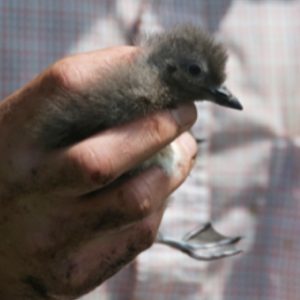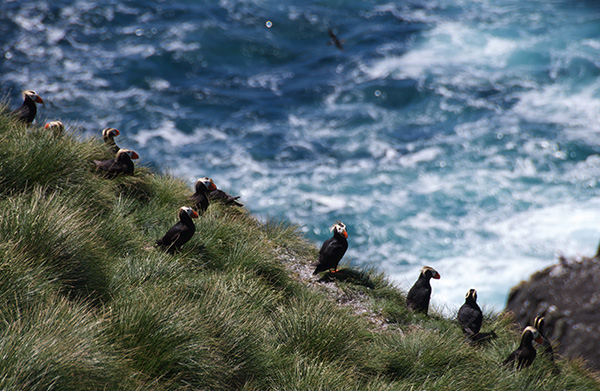Fifty-nine scientists from around the world are calling for better protection of British Columbia’s Scott Islands marine National Wildlife Area. The proposed regulations for Canada’s newest marine protected area were released for public review and comment on December 31, 2016, however, the proposed regulations failed to restrict or regulate damaging activities like bottom trawling, long-line and gill-net fisheries and shipping from the area. On January 30, 2017, the scientists sent a letter to the Hon. Catherine McKenna, Minister of Environment and Climate Change Canada calling for the prohibition of those commercial fishing activities, until it can be shown that they are not harmful to the seabirds or other marine life that use the Scott Islands. The letter also called for an outright prohibition of bottom trawling in the proposed marine National Wildlife Area.
“Bottom trawling is devastating for marine species and spaces. It involves dragging a very heavy net along the seafloor, removing everything in its path,” said Dr. Amanda Vincent, Professor in UBC’s Institute for the Oceans and Fisheries (IOF). “We know that bottom trawling destroys seafloor habitats like corals and sponges. These provide critical homes for a large number of species, including invertebrates and fishes that support the entire ecosystem of the Scott Islands, from birds to whales,” she added.

Cassin’s Auklet – Credit: Sabine Jessen
The Scott Islands is the largest seabird breeding colony in BC, home to 70% of Canada’s tufted puffins and more than 50% of the world’s Cassin’s auklets. It is also an important area for a number of other species at risk including sea otters, Steller sea lions, whales, and leatherback sea turtles. It is estimated that the number of breeding seabirds at the Scott Island has declined from 2.2 million to 1.4 million since the 1990s.
The Scott Islands would be the first marine National Wildlife Area to be established in Canada, and scientists and conservationists alike are concerned that the proposed regulations set a worryingly weak precedent for future marine protected areas.
In the letter, they “strongly urge[d] Environment and Climate Change Canada to improve the proposed regulations to provide effective in situ conservation and protection of both seabirds, other species at risk (which include sea otters, Steller sea lions, and several species of whales and leatherback sea turtles) and the broader marine ecosystems of the Scott Islands.”
Signatories to the letter include IOF’s Dr. Amanda Vincent, Dr. Daniel Pauly, Dr. Rashid Sumaila, and IOF and Institute for Resources, Environment and Sustainability professor, Dr. Kai Chan. Others from UBC include: Dr. Sarah Otto , Professor of Zoology; and, Dr. Mary O’Connor, Associate Professor, Department of Zoology & Associate Director, Biodiversity Research Centre.

Tufted Puffins – Credit: Sabine Jessen
Tags: Amanda Vincent, British Columbia, Daniel Pauly, faculty, Kai Chan, Marine protected areas, Rashid Sumaila, sustainability